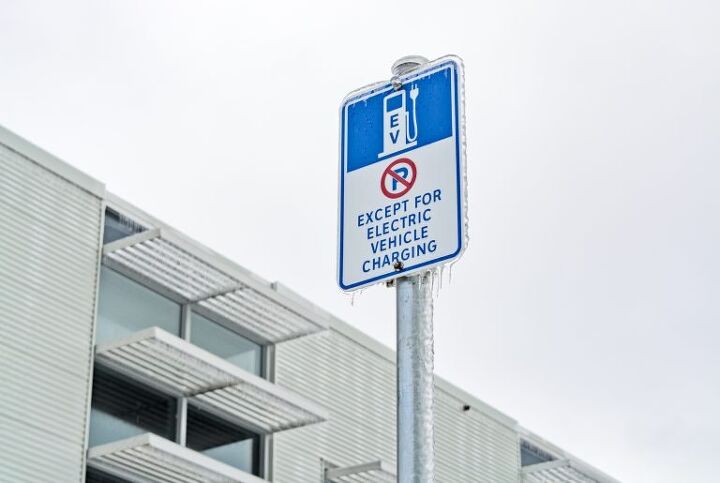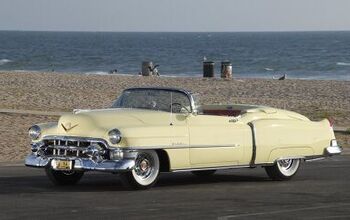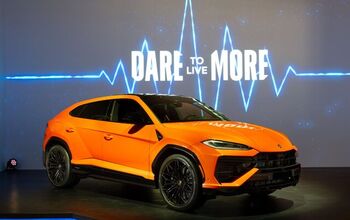Unfair? Toyota Launches Ad Campaign Opposing EV Tax Credit Scheme

Toyota Motor North America has already voiced its opposition to the proposed EV tax credit scheme tied to the the Democrats’ latest spending bill. This week, it has decided to expand its message by purchasing advertisements in national publications.
Starting Tuesday, Toyota will be launching an ad campaign intended to help bring Americans toward its side of the fence. While the automaker isn’t intrinsically offended by the government-backed incentivizing of electric vehicles, it has taken umbrage with the Biden administration’s insistence that consumers be issued an additional $4,500 incentive for purchasing union-made products. Though the reasoning should be obvious, since the company doesn’t have any unionized facilities in the U.S., the automaker is seeing growing support as the related legislation is stalled on Capitol Hill.
While the Build Back Better Act is concerned with subsidized childcare, tweaking healthcare, and rejiggering a few tax codes, it’s primary goals revolve around setting aside hundreds of billions for climate initiatives. The latter aspect has also been the one feature that’s been the least subject to change as the bill has been tailored in the hope to get more congressional support. The climate agenda is obviously important to the Biden administration and the proposals piggyback on an earlier White House promise to transition the entire federal fleet to EV — that plan currently seems to be having trouble getting off the ground, however.
The Build Back Better legislation intends boost consumer tax credits to as much as $12,500 for EVs assembled in a factory represented by a labor union with batteries produced inside the United States. Anything else will fall short of the maximum by at least a few grand.
Toyota has found this to be unfair and completely counter to the United States government encouraging a free market. In the advertisements spread across outlets like the Wall Street Journal and New York Times, the automaker requests that Congress “put politics aside” and ensure EV tax credits are applied equally.
“What does this say to the American autoworker who has decided not to join a union? It says that their work is worth $4,500 less because they made that choice,” asks the ad. “What does this say to the American consumer? It says that if they want to buy an electric vehicle not made by Ford, General Motors or Chrysler, they will have to pay an extra $4,500 — which is about $100 more per month over a four-year period.”
According to Automotive News, Toyota is already seeing a coalition of supporters forming. This includes, but is not limited to, the American International Automobile Dealers Association (AIADA) — representing over 9,000 internationally branded dealerships located in the United States. Last week, they called the proposed EV framework “discriminatory.” It then issued a formal letter asking the White House and Congress to “”to stop playing politics with car sales and start working for all Americans — not just those who pay union dues.”
“The inclusion of this $4,500 UAW-only tax credit is an insult to the 673,000 Americans who work in international nameplate manufacturing plants and dealerships,” AIADA’s CEO Cody Lusk elaborated. “Far from ‘Building Back Better,’ this provision makes it more difficult for Americans to buy green vehicles, as it can only be applied to a handful of the more than 60 electric vehicles available for sale today.”
From AN:
Toyota’s advertisement comes as opposition to the proposed EV tax credit multiplies, with other international automakers, Republican governors from auto states, Canada and Mexico criticizing the proposal.
A group of 25 ambassadors to Washington also questioned the proposal in a letter sent Friday, Oct. 29, to House Speaker Nancy Pelosi, Minority Leader Kevin McCarty, Senate Majority Leader Chuck Schumer and Minority Leader Mitch McConnell.
The ambassadors, who represent Germany, Japan, France, South Korea, Italy, the European Union and other countries, said the legislation “if implemented, would violate international trade rules, disadvantage hard-working Americans employed by these automakers and undermine the efforts of these automakers to expand the U.S. EV consumer market to achieve the administration’s climate goals.”
Autos Drive America, a group that represents the U.S. operations of international automakers, including Toyota, said the ambassadors’ letter “should make the administration and Congress realize that this is just bad policy.”
“It discriminates against American workers, undermines global climate change goals and threatens our relationships with our trading partners,” Jennifer Safavian, CEO of Autos Drive America, said in a statement. “Tax incentives should be fair and equal for all EVs.”
Sen. Debbie Stabenow (D-MI) has backed the bill’s pro-union aspects since before its inception and has said it would encourage the security of well-paid Michigan jobs. Considering EV proliferation will ultimately shrink the number of automotive-related manufacturing positions, her claims seem worthy of some criticism. However the majority of union-backed facilities exist in the Midwest, so she’s not altogether wrong in suggesting it could help keep keep in industry confined to her state.
UAW President Ray Curry has similarly praised the Biden administration, stating that the proposed EV tax credit would be a “win for auto manufacturing workers.”
The matter is literally split along partisan lines. Staunch Democrats and union groups are backing the plan as is. Republicans and automakers feeling they’ll be getting less free money from the government are largely opposed, citing the matter as unfair. Basically, everyone wants the taxpayer cash and is going to be upset if they’re left with a smaller slice of the pie.
Our take? The sale of electric vehicles had been heavily incentivized by the U.S. government for over a decade before Build Back Better came into being. Meanwhile, internal combustion vehicles continue to be hamstrung by evolving regulatory penalties (from around the world) that are supposedly beneficial for the environment. While some of those efforts undoubtedly hold merit, the outcomes don’t always result in lessened pollution without a robust and reliable national energy plan. China is also now responsible for a quarter of the world’s greenhouse gas emissions and benefits immeasurably from the increased sale of battery powered automobiles. A lot of the proposals likewise seem to be more about helping select industry actors and political allies than cleaning up the atmosphere. All told, it makes one wonder at the true efficacy of such proposals and why EVs have not yet been able (or even asked) to stand on their own.
[Image: Imagenet/Shutterstock]

A staunch consumer advocate tracking industry trends and regulation. Before joining TTAC, Matt spent a decade working for marketing and research firms based in NYC. Clients included several of the world’s largest automakers, global tire brands, and aftermarket part suppliers. Dissatisfied with the corporate world and resentful of having to wear suits everyday, he pivoted to writing about cars. Since then, that man has become an ardent supporter of the right-to-repair movement, been interviewed on the auto industry by national radio broadcasts, driven more rental cars than anyone ever should, participated in amateur rallying events, and received the requisite minimum training as sanctioned by the SCCA. Handy with a wrench, Matt grew up surrounded by Detroit auto workers and managed to get a pizza delivery job before he was legally eligible. He later found himself driving box trucks through Manhattan, guaranteeing future sympathy for actual truckers. He continues to conduct research pertaining to the automotive sector as an independent contractor and has since moved back to his native Michigan, closer to where the cars are born. A contrarian, Matt claims to prefer understeer — stating that front and all-wheel drive vehicles cater best to his driving style.
More by Matt Posky
Latest Car Reviews
Read moreLatest Product Reviews
Read moreRecent Comments
- Lou_BC Well, I'd be impressed if this was in a ZR2. LOL
- Lou_BC This is my shocked face 😲 Hope formatting doesn't fook this up LOL
- Lou_BC Junior? Would that be a Beta Romeo?
- Lou_BC Gotta fix that formatting problem. What a pile of bullsh!t. Are longer posts costing TTAC money? FOOK
- Lou_BC 1.Honda: 6,334,825 vehicles potentially affected2.Ford: 6,152,6143.Kia America: 3,110,4474.Chrysler: 2,732,3985.General Motors: 2,021,0336.Nissan North America: 1,804,4437.Mercedes-Benz USA: 478,1738.Volkswagen Group of America: 453,7639.BMW of North America: 340,24910.Daimler Trucks North America: 261,959


































Comments
Join the conversation
Biden isn’t senile. He’s stupid. He’s always been stupid and always will be stupid. People who cheat in college and are repeatedly caught plagiarizing are stupid. Anybody who has an EV summit yet refuses to invite Elon Musk to it is stupid. Anybody who offers a higher incentive to buyers of union made EVs is stupid — as are those who think this greasing of palms to win votes in future elections with government money is a good idea. Little wonder that vile, disgusting creature and his equally inept administration is going down in flames. Too bad the midterms weren’t yesterday. He should resign and go bowling with the equally stupid W.
Biden isn’t senile. He’s stupid. He’s always been stupid and always will be stupid. People who cheat in college and are repeatedly caught plagiarizing are stupid. Anybody who has an EV summit yet refuses to invite Elon Musk to it is stupid. Anybody who offers a higher incentive to buyers of union made EVs is stupid — as are those who think this greasing of palms to win votes in future elections with government money is a good idea. Little wonder that vile, disgusting creature and his equally inept administration is going down in flames. Too bad the midterms weren’t yesterday. He should resign and go bowling with the equally stupid W.